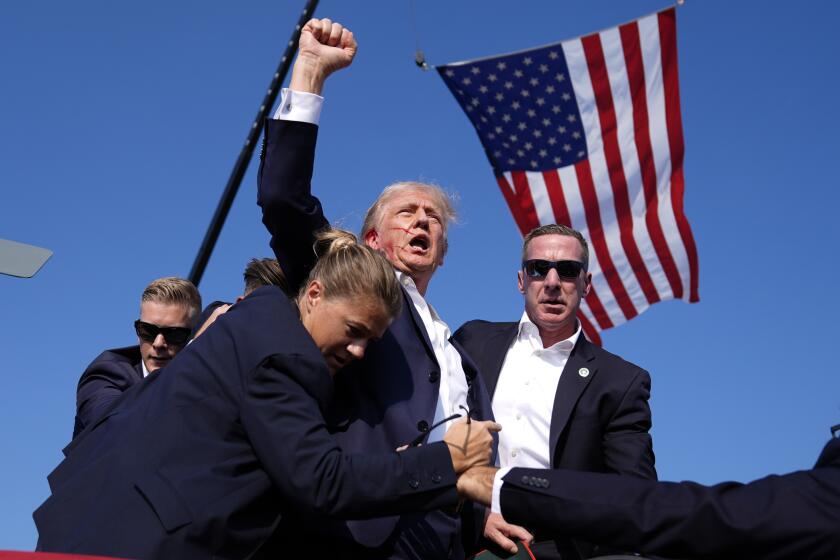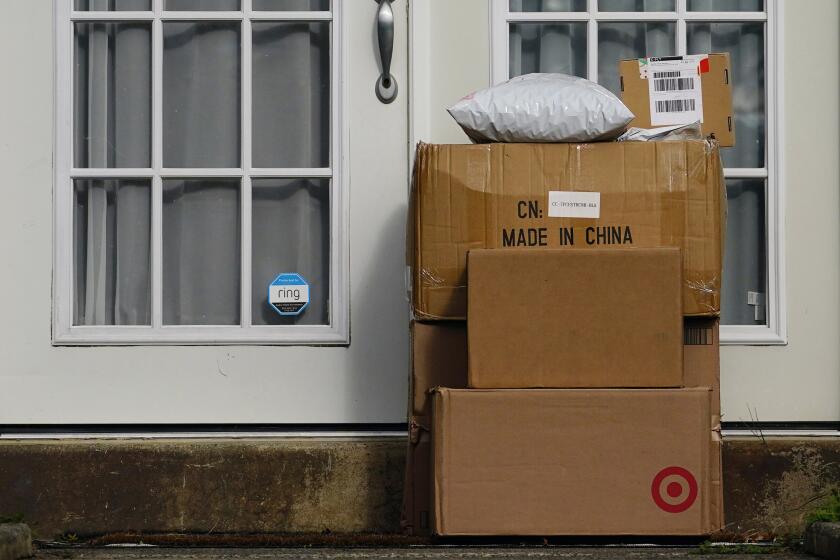‘Protect Children Act’ Aims to Ban Cigarette Deals in Film
Legislation has been introduced in Congress to ban youth-oriented cigarette advertising, including payments to film makers to feature specific cigarette brands in their movies.
Paid “product placement” deals, calling for brand-name merchandise to be shown in films, are a legal and potentially large source of revenue for movie producers.
But paying to have cigarettes placed in movies is “a subtle technique by the merchants of addiction to get young people to smoke,” Rep. Tom Luken (D-Ohio) said in introducing the bill last week. The proposed legislation is being co-sponsored by Rep. Jim Bates (D-San Diego) and Bob Whittaker (R-Kan.).
Luken also said paid placement of cigarettes in films “has the effect of circumventing the federal ban on cigarette advertising on television” when movies appear on TV.
Tobacco companies say they shy away from product placement deals precisely to avoid charges like the one Luken made.
But in filing the bill last week, Luken, who chairs the House transportation and hazardous materials subcommittee, said a preliminary inquiry has turned up three instances in which cigarette makers did pay to feature their brands in recent films.
In response to questions from Luken, Liggett Group Inc. said in a letter that it paid $30,000 in 1983 to have its Eve cigarette brand appear in the movie “Supergirl”--although the company’s policy since has been to “not pay for product to be used in films.”
Philip Morris Cos., the No. 1 U.S. tobacco company and maker of the Marlboro brand that is the world’s largest seller, disclosed two cases in which payments were made to feature cigarettes in foreign-made films destined for United States and foreign audiences. In a Feb. 24 letter, the company said these were the only cases it had discovered “based upon our review thus far.”
In the first case, more than $40,000 was paid in 1979 for Marlboro to appear in “Superman II.” And the company’s Tokyo-based advertising agency agreed last fall to pay $350,000 to showcase Lark cigarettes in “License Revoked,” a new James Bond film shot primarily in Mexico. Lark is actually a Liggett brand, but Philip Morris owns the rights to the brand overseas, including in Japan, where the James Bond character is especially popular.
In the United States, Philip Morris said, it has been providing free cigarettes or advertising signs for an average of 17 films per year, but without paying cash.
Earlier this year, a Philip Morris spokesman told The Times that the company had not paid to place its cigarettes in movies “for at least 10 years,” but said he was not sure this applied to all foreign subsidiaries.
R.J. Reynolds Tobacco Co., the No. 2 cigarette maker, told Luken it does not pay film makers to feature its brands, a policy “we believe . . . has been adhered to” at least since 1982.
Frank Devaney, director of product placement at Rogers & Cowan Inc., a public relations firm, said Reynolds “is the one account that I don’t pursue any placements for.” He said that when film makers request cigarettes for movies rated “R” or “PG-13,” “I give them product and that’s it. . . . If they come to me and they want my brand, I’m certainly going to say OK.”
The issue is a sensitive one for the cigarette makers, who were helped in decades past by a flood of endorsements from glamorous stars. The companies say they do not target adolescents through movies or other media, and that they advertise only to lure smokers of other brands--not to induce non-smokers to start.
Critics have long accused the companies of using popular entertainment to market their brands to youth. With nearly all new smokers taking up the habit while still in their teens, critics say the cigarette makers must target youth to replace the 2 million smokers who annually quit or die.
An aide said Luken will press the cigarette companies for more specifics on their product placement policies. For example, some firms that said they currently do not pay to get their brands in movies did not provide information back to 1979, as Luken requested.
Legislation to ban all forms of cigarette advertising and promotion went nowhere in the last session of Congress. The Luken bill, dubbed “The Protect Our Children From Cigarettes Act of 1989,” takes a less sweeping approach. It would permit text-only advertising on billboards and in print media, with no pictures other than the cigarette pack. However, cigarette billboards would be banned from sports arenas, vending machine sales would be barred in places accessible to adolescents and payments to feature cigarettes in movies would be banned.
Luken said he was not trying “to restrict in any way an artistic decision to have a smoking scene in a movie.” But he said that decision “should not be influenced by the lure of large cash payments.”
Jack Valenti, president of the Motion Picture Assn. of America, declined comment, saying through a spokeswoman he was studying the bill.
More to Read
Inside the business of entertainment
The Wide Shot brings you news, analysis and insights on everything from streaming wars to production — and what it all means for the future.
You may occasionally receive promotional content from the Los Angeles Times.






